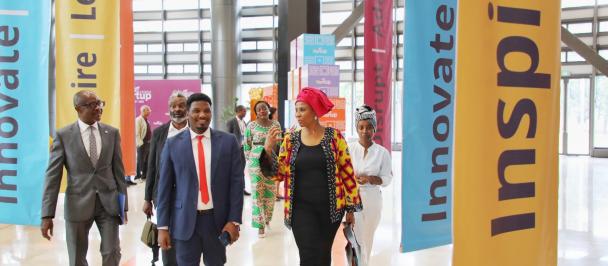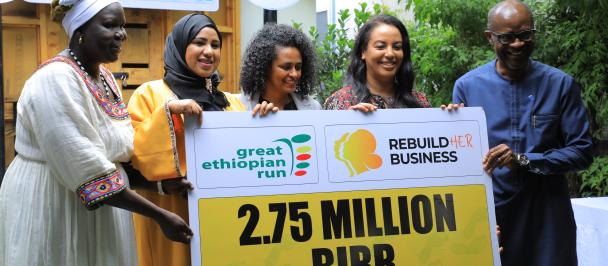Restoring women's livelihoods after conflict
January 12, 2024
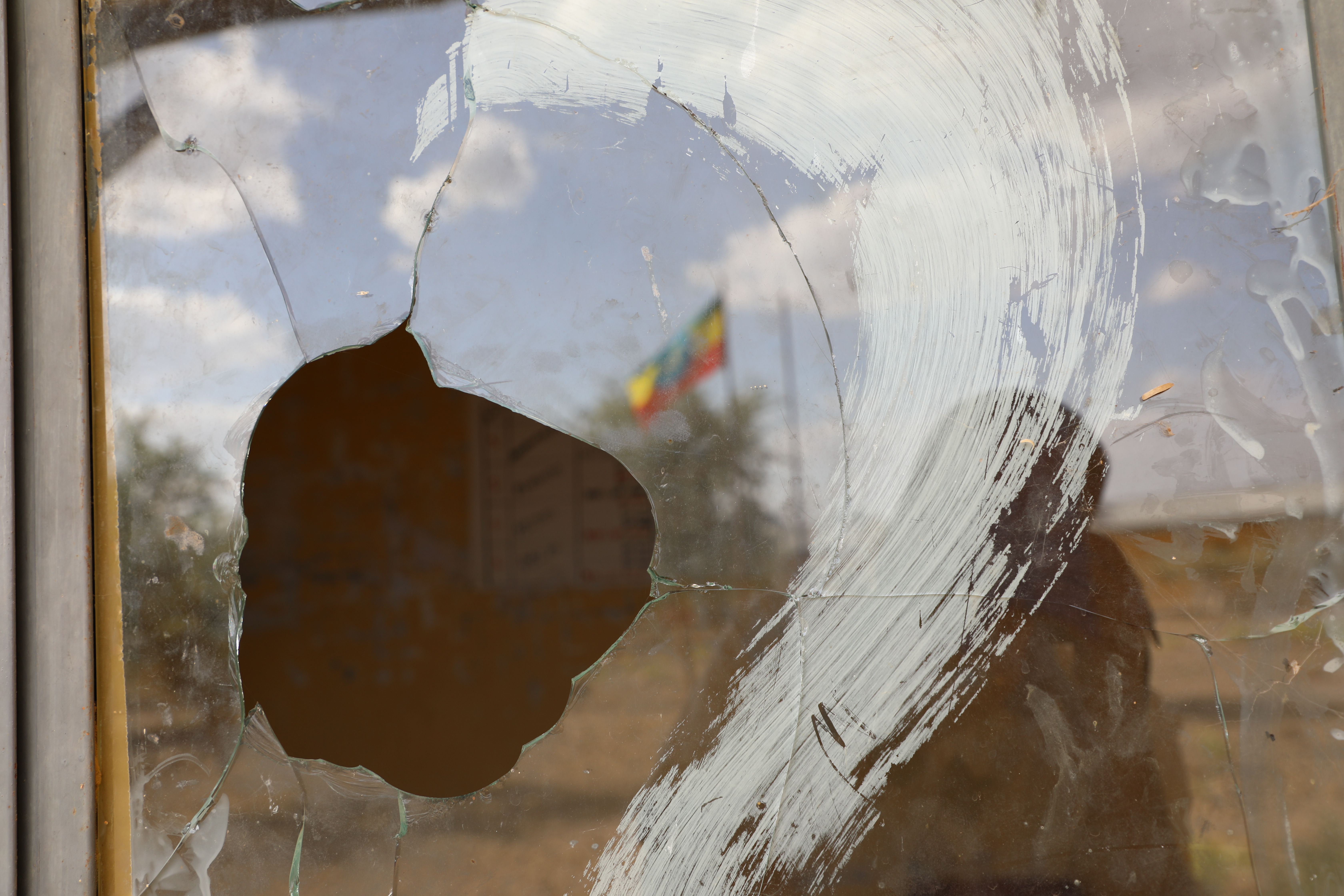
The conflict that broke out in the northern part of Ethiopia and came to an end with a peace agreement took the lives of many, displaced thousands of people, and left millions dependent on food and humanitarian aid. Above all, Children, mothers, and people with disabilities are the most confronted ones and still struggling with the trauma of the disaster that completely changed their lives and ruined their dreams.
UNDP's Peace Support Programme is helping these women ro rebuild their lives. The programme is financially supported by the Government of Germany, UNDP core partners, and Funding Windows.
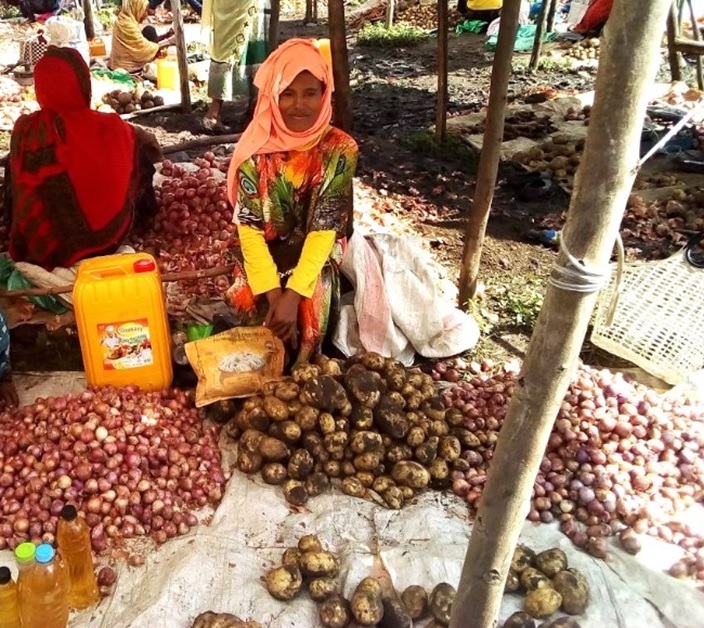
Senidu Abebaw, 30, is a mother of two who lives in Goshwuha kebele of Habru Woreda. She recalls a happy past when she had a well-furnished home and was able to meet her children's needs.
Unfortunately, Senidu lost her assets and her small business in the conflict, and she recalls, “I have passed through a very difficult time. I lost the resources that I acquired for decades. My children were forced to drop out of school. We stayed at my relative's house for more than five months and have been sharing resources to keep our families alive." She recalls that her biggest headache was getting an income to feed her family.
Senidu reflects that life is has different chapters, and each has its own story, lessons, and opportunities. She has now managed to rebuild her house using resources mobilised from the local community by the woreda Women Children and Social Affairs Bureau.
Senidu also took part in an income generating activity training and received a cash grant through the economic revival intervention of the peace support program in the woreda with the support of UNDP. The 12,000.00ETB (USD 218) cash support has enabled her to restart her small business. Now Senidu uses her income to feed her family and send her children to school.
“I appreciate the opportunities and the support that I received so far. Now, I have a job and can feed my family, and my children are also back at school," Senidu says with optimism for her future.
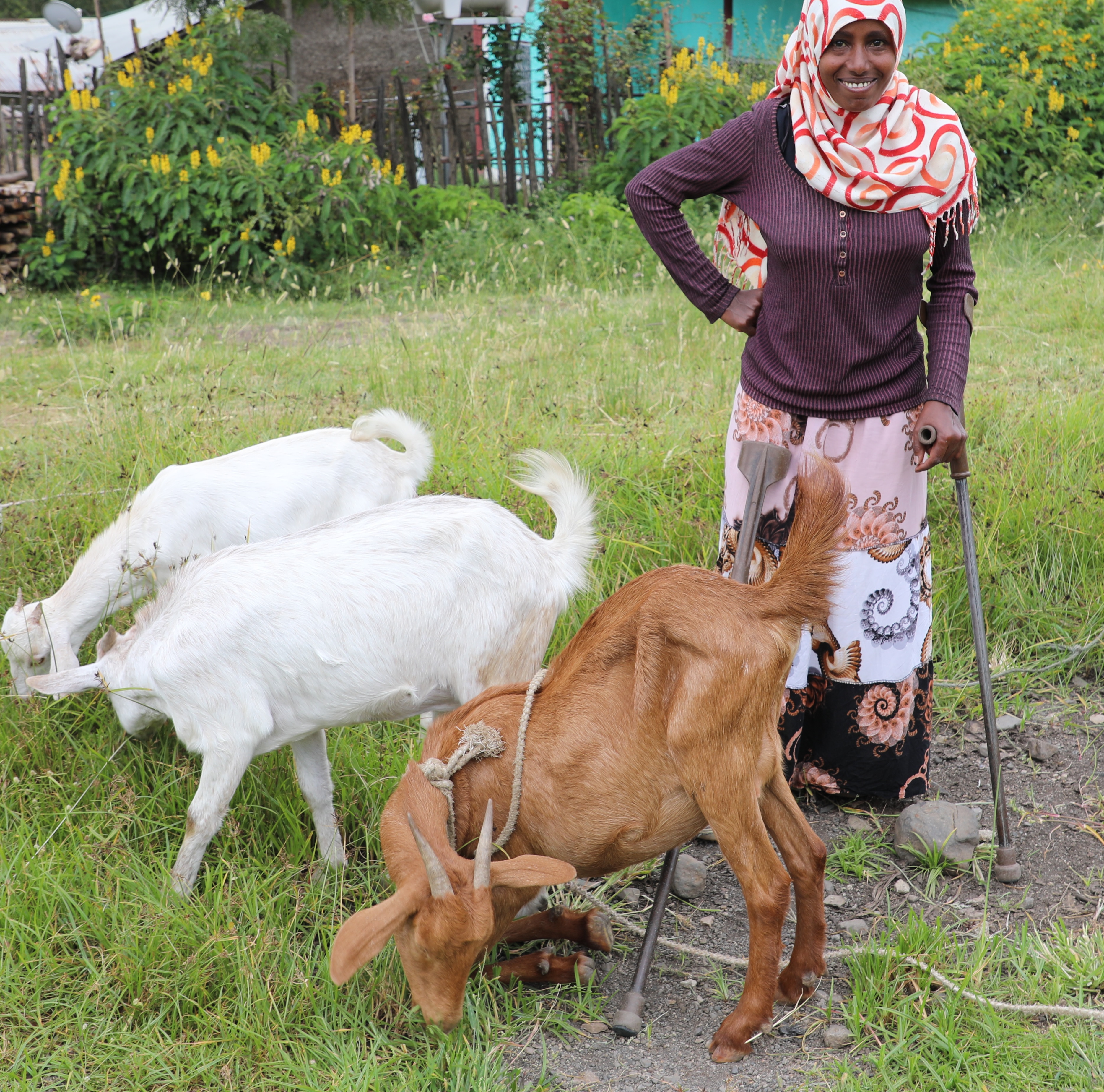
Abeba, 22, is among the many people affected by the conflict in northern Ethiopia. Dropping out of school after the 10th grade, Abeba recalls that she was once proud of the life she had built for herself.
“I used to cover the family’s day-to-day expenses with goat rearing, topping up my husband's income. I lost my husband and our livelihood with the conflict, and I had nothing left,” says Abeba.
Abeba continues, “Though the pain is unbearable and unforgettable, I don’t want to fail. I looked at my ability and potential to be self-sufficient rather than dependant on others. I am skilled in making traditional handicrafts and survived the difficult times by selling handicrafts at the local markets in Sulula kebele, one of the conflict-impacted areas in the region” .
Abeba earned about 5000 ETB (USD90) each month from the handicrafts.
Abeba has been selected through the UNDP’s peace support program and has received four goats.
“I am excited with the support that I received. I will earn income from breeding the goats and plan to use this resource to one day start a small business,” says Abeba. She expresses her wish to be a role model for other women in her community trying to rebuild their lives after the conflict.
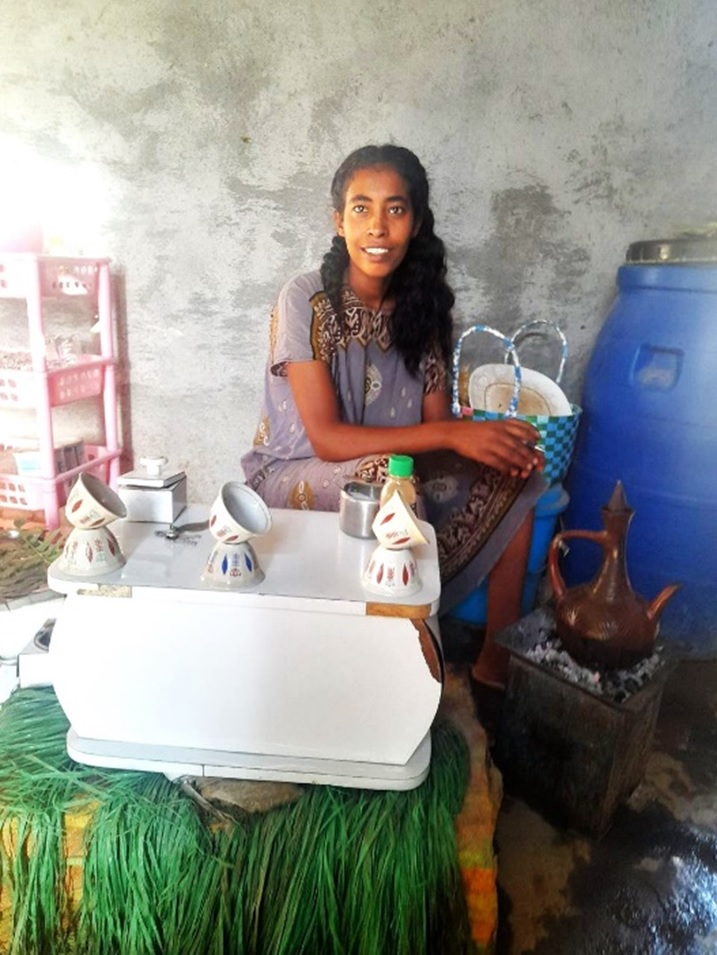
Maritu Kasse, 26, is from Abergele woreda. She was leading her life with a small business where she sold tea, coffee, and fast food.
Sadly, all equipment in the tea shop had been looted or damaged during the conflict, and Maritu lost the business she had worked years to build. Therefore, she couldn’t run the business for the past two years.
“It was the most difficult time of my life. I lost everything I had and stayed at home with an empty hand,” Maritu shared what she experienced during the conflict.
Fortunately, the Aberegle woreda Labour and Training office selected Maritu along with other women who were affected by the conflict to get support and rebuild their lives. This was an opportunity that came while they were in a desperate situation.
She had taken entrepreneurship training that empowered her to be a capable young woman to run her business. In addition, she has received 20,000.00 ETB (around USD 363.00) cash support.
“I have bought the basic equipment and inputs for the tea shop with the cash I have received and restarted my business again. I also started saving monthly to expand my business. I am so grateful and happy for what I have recieved so far and the change in my life,” said Maritu.

 Locations
Locations
